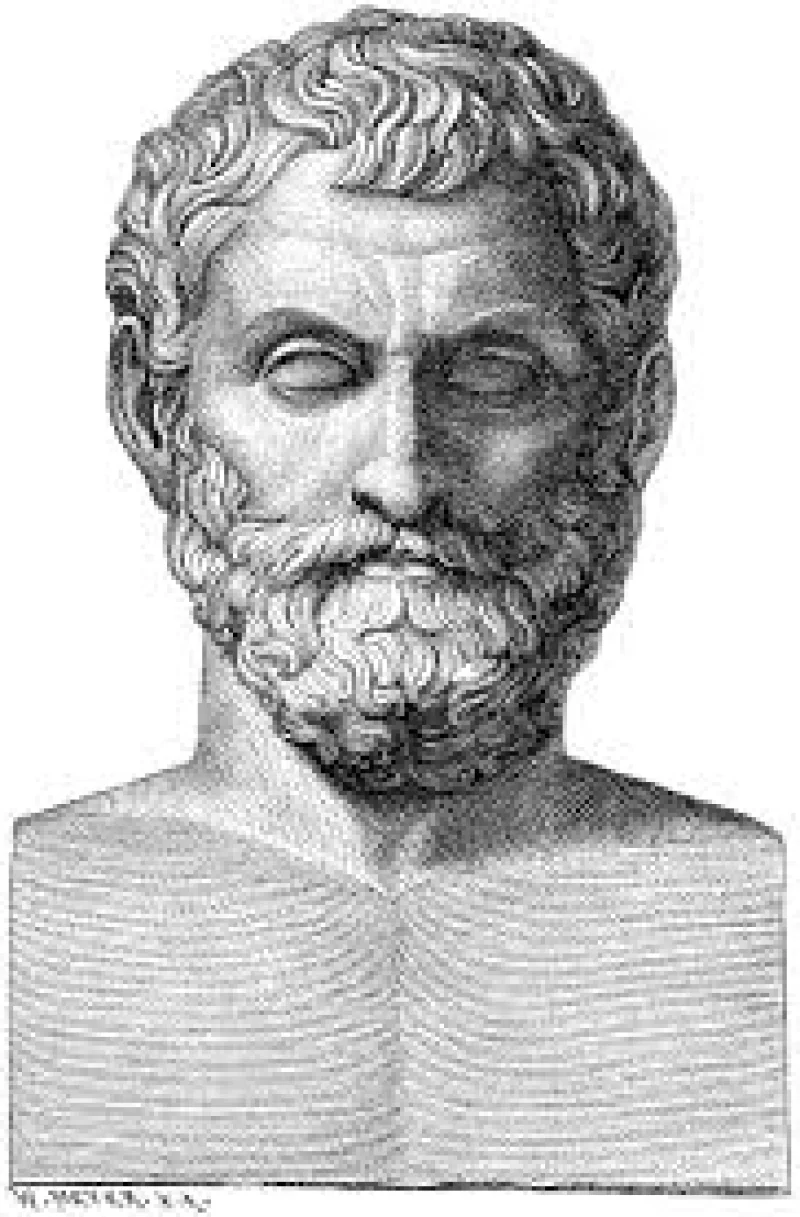Short Summary
Thales of Miletus was a pre-Socratic Greek philosopher, mathematician, and astronomer from the city of Miletus in Ionia, Asia Minor. He is often regarded as the first philosopher in Western history and is considered one of the Seven Sages of Greece. Thales is famous for his pioneering efforts in using reason and observation to explain natural phenomena, laying the groundwork for scientific inquiry. His contributions to geometry and his hypothesis that water is the fundamental substance of the universe are among his key achievements.
Early Life & Education
Thales was born around 624 BCE in Miletus, a thriving Greek city located in what is now modern-day Turkey. Little is known about his family or early years, but he is believed to have been of Phoenician descent. Thales was likely educated in both mathematics and astronomy, which were advanced fields in Ionia at the time. His travels to Egypt and Babylon exposed him to additional knowledge, particularly in geometry, which would later influence his work. His early influences included the rich intellectual and cultural environment of Miletus, which was a hub for trade and knowledge exchange.
Career Highlights
Thales is credited with numerous intellectual advancements during his lifetime. As a philosopher, he proposed that water is the fundamental principle (archê) of all things, suggesting a naturalistic rather than mythological explanation for the cosmos. He is also known for his work in geometry; notably, he discovered the fact that a circle is bisected by its diameter. His predictive skills were demonstrated when he forecasted a solar eclipse, showcasing his understanding of astronomy. Thales' thinking laid the groundwork for future philosophical inquiry and scientific exploration, influencing later thinkers such as Anaximander and Pythagoras.
Major Achievements
- Proposed that water is the essential substance of the universe, providing a naturalistic view of the cosmos.
- Predicted a solar eclipse, demonstrating advanced knowledge in astronomy.
- Contributed to geometry by establishing principles such as the bisecting of a circle by its diameter.
- Considered one of the Seven Sages of Greece for his wisdom and intellectual contributions.
Famous Quotes
- "The most difficult thing in life is to know yourself."
- "Time is the wisest of all things that are; for it brings everything to light."
Interesting Facts
- Thales is considered the first philosopher to suggest a single material substance as the origin of all things.
- He is said to have fallen into a well while gazing at the stars, highlighting his deep interest in astronomy.
- Anecdotes suggest that he used his knowledge of weather patterns to predict and profit from an olive harvest.
- Thales is sometimes referred to as the "Father of Science" due to his emphasis on observation and reasoning.
Legacy / Influence
Thales' emphasis on rational thought and observation over mythology laid the foundations for Western philosophy and science. His ideas encouraged the questioning of traditional beliefs and inspired future philosophers and scientists to seek natural explanations for phenomena. His work in geometry and astronomy influenced subsequent developments in these fields, shaping the course of intellectual history in ancient Greece and beyond.
FAQ
Q: Why is Thales of Miletus famous?
A: He is famous for being one of the first philosophers to seek natural explanations for the universe and for his contributions to geometry and astronomy.
Q: What did Thales believe was the fundamental substance of the universe?
A: Thales believed that water was the fundamental substance of the universe.
Q: What was Thales' contribution to geometry?
A: He discovered principles such as the fact that a circle is bisected by its diameter.
Q: Is there a famous anecdote about Thales?
A: Yes, he is said to have fallen into a well while stargazing, illustrating his passion for astronomy.












